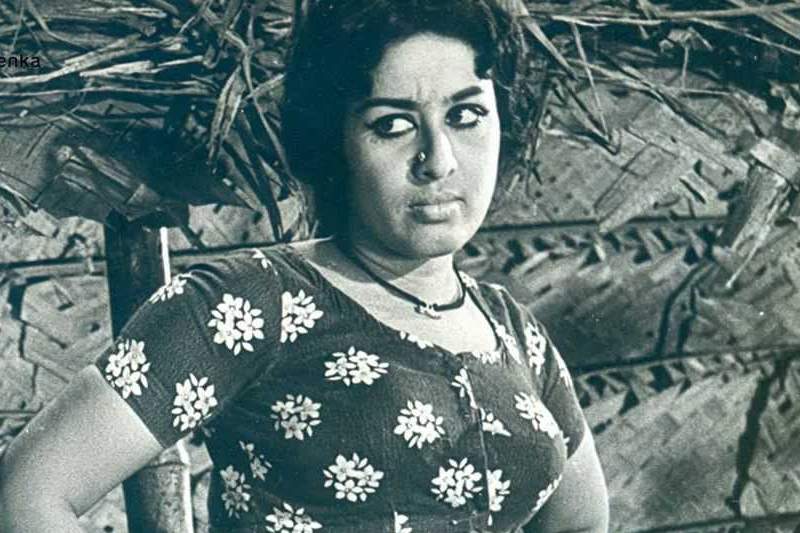In P Bhaskaran’s Kallichellamma (Chellamma, the thief), Sheela plays a young tapioca seller living in a shed by the side of Vellayani lake in Trivandrum. The village menfolk line up along the lanes Chellamma takes, to the town’s market with Valli Akkan (Adoor Bhavani) – the elderly neighbour who raised her after her parents died. She responds to their lecherous gaze by mocking them, calling them out for their hypocrisy, and injuring their fragile egos. They retaliate by harassing her and casting aspersions on her.
Kallichellamma, produced by Shobhana Parameswaran Nair for Roopavani, released 50 years ago – on August 22, 1969. It is based on a novel of the same name written by G Vivekanandan in 1956. The film, which narrates an unusual female experience, starred Prem Nazir, the then reigning male superstar, as a selfish drifter with whom Chellamma tragically falls in love. The film also features Madhu as a bazaar agent, in a supporting role.
In 1969, when the Kerala State Government constituted its official film awards – the award selection committee was headed by CI Parameswaran Pillai – Sheela won the award for best actress and Adoor Bhavani best supporting actress for Kallichellamma. . Kallichellamma also has the credit of being the first Malayalam film to be shot in Orwo colour. While the outdoor scenes were shot in Vellayani, the interiors were picturised in a studio in Chennai. Late NL Balakrishnan made his debut as a still photographer through this film.
Vivekanandan, who was also the founding-director of the Kerala Film Development Corporation, always set his literary works in Vellayani and its nearby areas, where he grew up. Kallichellamma is one of the first Malayalam films to use the Thiruvananthapuram dialect. The film features the spaces where the proletariat in Trivandrum live – from the city’s Palayam market to the fishing and agrarian community by the lake. Chellamma’s one-room hut stands on the land of a feudal lord. When he threatens to evict her after she turns down his sexual advances, it is a local tailor, Kochu Kunju (Sankaradi), that she approaches for help. “No one can throw anyone out of where they live. Not anymore. That era is gone,” states the tailor. In a few words, the screenplay paints a vivid portrait of Kerala society in the 50s and 60s. The level-headed Kochu Kunju is the only man in the village who sees Chellamma as the struggling human being she is.
The film is radically different from modern women-centric tales in mainstream cinema, for it doesn’t look at its female protagonist as a ‘model’. Her actions aren’t easily agreeable or based on a popular doctrine. The film demands that the audience makes a genuine effort to understand Chellamma’s truth. When Kunjachan (Prem Nazir) abandons her after a one-night-stand that pushes her into the middle of a scandal, she is filled with hope than anger. When he returns one day, as an unfamiliar person – cruder and pitiable – she wavers between a state of bitterness and sympathy. She forgives him repeatedly while knowing it is a mistake. What shines bright in these moments of pain is her incredible will to survive and the callous patriarchal society that crushes it.
Interestingly, the camera never reduces Chellamma to an object of carnal desire. In the film’s extraordinarily-shot final moments (DoP U Rajagopal), Chellamma sends Kunjachan, his children and wife to bed, and watches them through the window on the outer verandah. Alone and distraught, she consumes a poisonous fruit, and waits for death to take her away. In a semi-conscious state, she plucks a tender coconut from the tree she planted in her mother’s memory, and that launches the final scandal of her life. As the landlord’s men heckle her, calling her kalli (thief), the camera focuses on her slipping into death, mumbling “I am not a thief”. Society is not fair to Chellamma in life or death.
***



